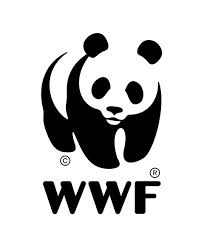Demand vs. Desire: New Guide Reframes Ivory Consumption Challenge
WASHINGTON, Jaunary 27, 2017 /3BL Media/ – A first-of-its-kind guide released by World Wildlife Fund (WWF) today suggests tackling the ivory trade requires a deeper understanding of consumers' underlying desires. “Reducing Desire for Ivory: A Psychosocial Guide to Address Ivory Consumption,” debuted today at a Fuller Seminar event at WWF's headquarters in Washington, D.C., suggests a new approach to help address the psychological and social factors that motivate people to purchase ivory.
With a focus on China – the world’s largest ivory market – the guide helps conservationists, governments, and campaign leaders assess and redirect the complex combination of cultural and societal forces and individual experiences and emotions that generate a consumer’s desire for ivory. Understanding consumers’ unconscious and unspoken desires can better inform ivory demand reduction efforts, helping halt the wildlife crime scourge claiming the lives of around 20,000 elephants annually.
"The single biggest driver fueling elephant poaching is consumer demand for ivory,” said Jan Vertefeuille, senior director for advocacy and wildlife conservation at WWF. “This guide offers a new approach that focuses on identifying the underlying motives of ivory consumers and how to redirect these. We're eager to see this approach put into action now."
Developed with psychosocial researcher and communications strategist Dr. Renee Lertzman, the guide marks conservation’s first-ever application of psychosocial insights to the global wildlife crime crisis.
“We can engage consumers and inspire behavior change by better understanding who we are talking to and what drives them,” said Dr. Lertzman. “By applying behavioral and neurosciences, we have reframed our understanding of the core challenge as reducing ‘consumer desire’ rather than simply reducing ‘consumer demand,' a shift we believe will be critical to really drive change.”
The guide comes at a pivotal moment in the fight to save wild elephants, with China’s government having announced just last month that it will ban all domestic ivory trade by December 2017. WWF expects the guide to support this goal and provide a tool to combat residual demand for ivory that persists after China’s ban is enacted. It will also lay the foundation to apply psychosocial concepts to other wildlife issues. WWF is making the guide available to government, academic and conservation community partners in the United States and overseas.
More about Dr. Renee Lertzman
Dr. Renee Lertzman is a researcher and communications strategist, applying psychosocial insights to conservation, environment and climate sectors for effective messaging and engagement. She advises a range of governmental, NGO, private and public sector organizations, as well as supporting environmental educators and professionals through workshops, seminars and trainings. She holds a MA in environmental communications from University of North Carolina, and a PhD in psychosocial research from Cardiff University. Her book, Environmental Melancholia: Psychoanalytic Dimensions of Engagement (Routledge) is now out in paperback.

